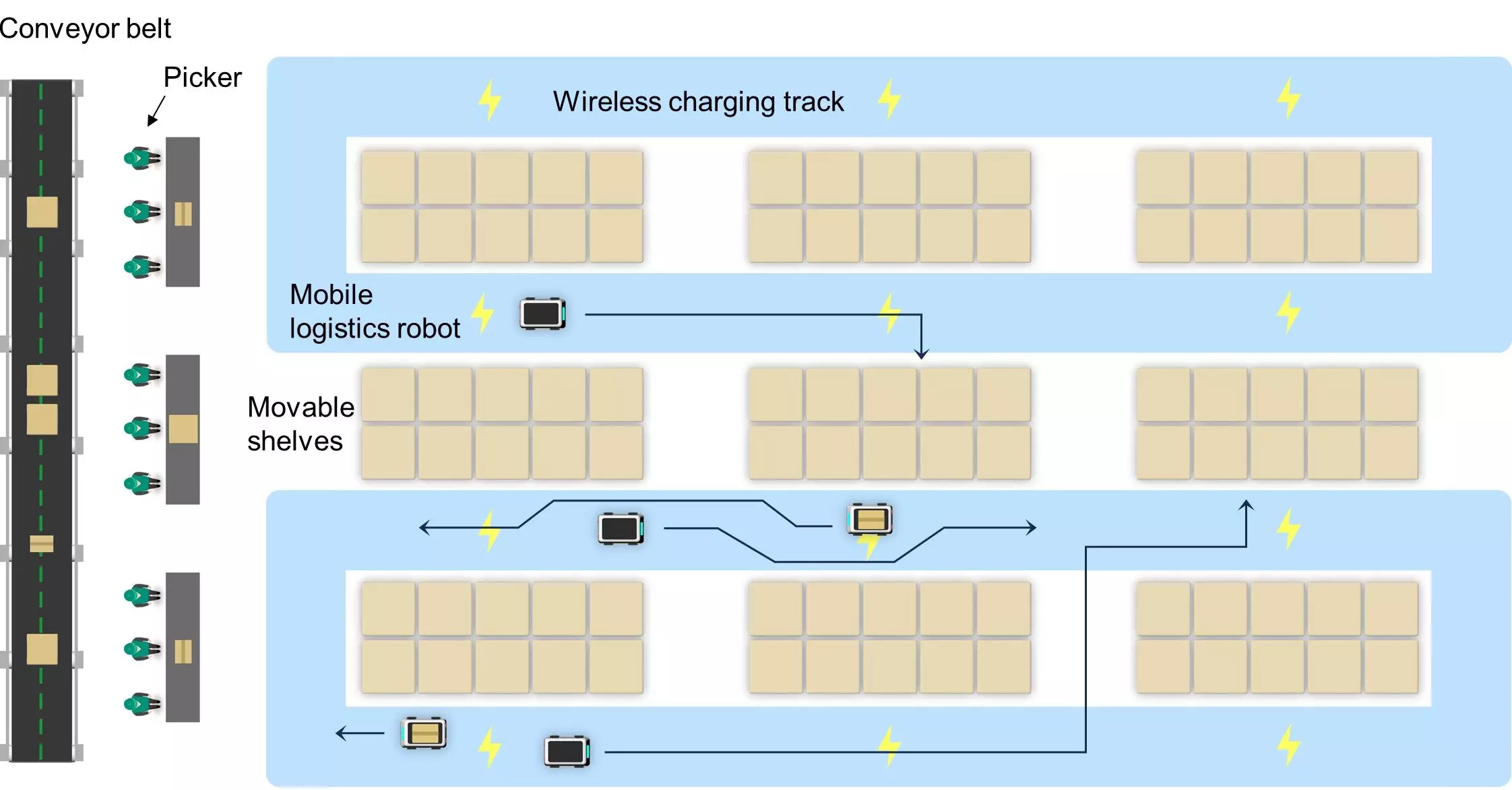The rise of electric vehicles (EVs) has been accompanied by significant advancements in charging technology, aimed at resolving the inherent limitations of conventional charging methods. A groundbreaking initiative spearheaded by researchers at UNIST introduces a solution that promises to redefine how EVs receive power. This innovative wireless charging system, designed for moving vehicles, represents a monumental leap toward integrating seamless charging capabilities into our transportation infrastructure.
At the heart of this development lies a track system that utilizes a robust network of wiring to deliver continuous power to vehicles on the move. Led by Professor Franklin Bien, the research team has harnessed the principles of electromagnetism to create a strong and expansive magnetic field, allowing electric vehicles to operate without the worry of locating charging stations. Unlike previous technologies that relied heavily on ferromagnetic materials to enhance efficiency—an approach fraught with high costs and durability issues—this system operates using a more adaptable and cost-effective solution.
The unique configuration of the wireless charging tracks allows for flexible vehicle maneuverability, covering both backward and forward movements. The electromagnetic generator at the core of this technology not only generates a circular magnetic field but also optimizes the power transfer, achieving efficiencies up to 90%. Such efficiency marks a significant improvement over existing systems, which have often required cumbersome hardware and significant design limitations.
The research team has further innovated by developing specialized algorithms that refine the design of both power supply tracks and the receivers installed in vehicles. This attention to detail is essential for improving the performance of the system, ensuring that electric vehicles can be charged dynamically as they travel. The implications for urban design and transportation systems are profound; the ability to charge while driving could eliminate previous concerns around battery life and charging downtime.
Safety considerations have not been overlooked in this ambitious project. To ensure that the wireless power supply technology is feasible for public use, rigorous safety verifications have been carried out. The system adheres to critical standards established by prominent organizations such as the Institute of Electrical and Electronics Engineers (IEEE) and the International Commission on Non-Ionizing Radiation Protection (ICNIRP). This commitment to safety is crucial, as the integration of new technology into everyday life demands thorough testing and validation.
As the world shifts toward sustainable transport solutions, the potential impact of this wireless charging technology is immense. Professor Bien envisions a future where electric vehicles can navigate more freely in varied environments—both horizontally and vertically—without the conventional constraints imposed by traditional charging methods. First author Hyunkyeong Jo further emphasizes that implementing this technology can significantly alleviate the challenges related to charging durations and range limitations.
The wireless charging system developed by the UNIST team not only exemplifies a technological breakthrough but also sets the stage for a new paradigm in electric vehicle infrastructure. This innovation may very well spell the end of battery anxiety for drivers and contribute to a more sustainable future for transportation worldwide.


Leave a Reply